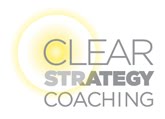I have a fear of flying. It started when I was 28 and peaked in my early 30's. It is a frustrating fear because I consider myself to be an intelligent person. Over the years
I have spent a lot of energy managing this fear and now, with advanced preparation, I fly with only a low-level of discomfort. At the heart of my success in overcoming this fear is the understanding that the symptoms (panic, shortness of breath, heightened sense of hearing) have nothing to do with the reality. The plane will land safely. The fear is a separate force that I can manage. I find it worth it to fight for this perspective; thanks to my efforts, I get enjoy the pleasures of seeing family and friends, and experiencing new places.
Imagine my life if I caved to my fear. No travel, no exploration, no friends and family. Sounds ridiculous, right? Yet every day we risk making similar concessions because we don't a) acknowledge our fears and b) see them for what they are: separate from reality. When talking about fear, some coaches refer to gremlins or saboteurs, some to limiting beliefs. I love the word saboteur, because our fears really do sabotage our progress and our dreams. They sound like, "What if I get promoted and they realize that I can't do the job?" or "What if I get a new job and realize that I don't like it and have to re-neg?" or "Why would I be the one? There are other people much smarter (prettier, more engaging, etc) who will surely get that job (promotion, guy, etc)." Think of all the resumes not sent, the networking events skipped, the opportunities overlooked.
Some signs that saboteurs are lurking are: procrastination, laziness or lack of motivation, constant overwhelm, or working too hard in an area separate from where we are looking to make progress. How do we fight them? In one of the Harry Potter books, the professor made the kids visualize their worst fear, then wave their wand at it and say, "Ridiculous!"
The key is to first imagine, or recognize the fear. What are the things that go off in your head when you think of making a change or taking on a new project? What is the self-judgement behind the fear? Write it down. The next step is to analyze it. Where does the belief come from? A fear of failure may come from having high standards. A fear of looking stupid may come from a complex knowledge of the topic at hand. These are good things. Think about seeing the positive in the fear. Then, like in Harry Potter, simply poke fun at it. In my training*, we learned to imagine the saboteur as a real character, to write its biography, ask ourselves what feeds it, what it does when we are not around, and what threatens it. There is a thought -- what threatens it. Chances are, what threatens our gremlins is being open, gathering information, making steady progress, taking action, etc, etc.
I will leave you with one thought: What is on the other side of your fear that you really, really want? What do you want that would make it worth it to face your fears?
*Coach Training Institute, San Rafael, CA
